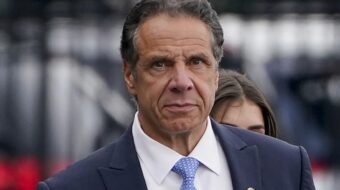The country’s biggest insurers, hospitals and medical groups have hired more than 350 former government staff members, including former members of Congress, in order to influence the health care debate taking place in the nation’s capital, the Washington Post reports.
Many of these groups, such as the Pharmaceutical Research and Manufacturers of America (PhRMA) and America’s Health Insurance Plans, are strenuously opposed to President Barack Obama’s public insurance option.
The Post notes that three of every four major health-care firms have at least one former political insider on their lobbying payrolls. “The aim of the lobbying blitz is simple,” says the Post, “to minimize the damage to insurers, hospitals and other sectors while maximizing the potential of up to 46 million uninsured Americans as new customers.”
Nearly half of the insiders now working for the industry groups previously worked for key committees and lawmakers including Sens. Max Baucus, D-Mont., and Charles E. Grassley, R-Iowa, who are now debating whether to include a public option in health reform legislation, the Post reports.
At least 10 others are former members of Congress, such as former House majority leaders Richard Armey, R-Texas, and Richard Gephardt, D-Mo., both of whom represent a New Jersey pharmaceutical firm.
Based on a review of federal financial disclosure records, the Post suggests the hirings are part of a record-breaking influence campaign by the health-care industry, which is spending more than $1.4 million a day on lobbying in the current debate.
In the first quarter of 2009 PhRMA doubled its spending to nearly $7 million, followed by Pfizer with more than $6 million.
According to the Center for Responsive Politics, overall, health-care companies and their representatives spent more than $126 million on lobbying in the first quarter of this year, leading all other industries.
Leading the pack was PhRMA, which employs 49 former government staff members among its 136 lobbyists. Dozens of other former insiders are employed as lobbyists for Pfizer, Eli Lilly, the American Medical Association and the American Hospital Association, each of which spent at least $3.5 million on lobbying from January through March.
As an example, the Post reports on a June 10 meeting between aides to Baucus, chairman of the Senate Finance Committee, and health care lobbyists including two former Baucus chiefs of staff: David Castagnetti, whose clients include PhRMA and America’s Health Insurance Plans, and Jeffrey A. Forbes, who represents PhRMA, Amgen, Genentech, Merck and others.
The Senate Health, Education, Labor and Pensions Committee headed by Sen. Edward Kennedy, D-Mass., has put forward a plan similar to Obama’s, including a public plan, but Baucus’s committee, which is acting as the central broker in the health care legislative effort, has not committed to the public option. Instead the Finance Committee has focused recently on private-insurance cooperatives and other proposals seen as more friendly to the insurance industry. More than 50 former employees of the committee or its members lobby on behalf of the health care industry, according to the Post.
Public interest groups and health care reform advocates charge such lobbying by former members of Congress and their aides distorts the debate. They say such practices illustrate a bigger problem of money being used to finance a “revolving door” between government and private firms.
Such maneuverings by those with big capital in the health-care industry only have their pocket books in mind and not the interests of the millions uninsured or under-insured throughout the country, health care advocates say. Health care is a basic right for all, not only for the privileged few, they say.
plozano @ pww.org









